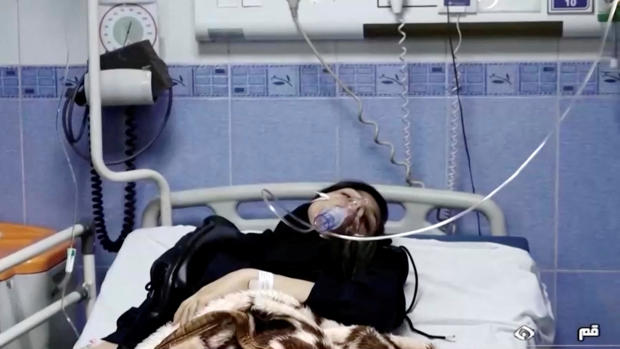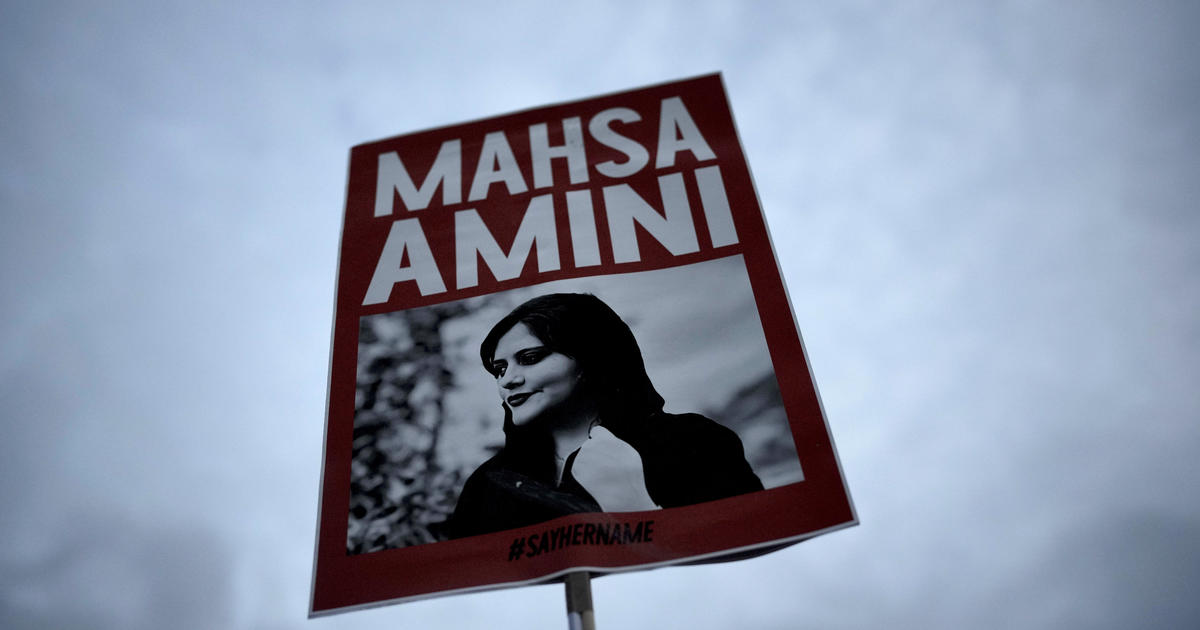Hundreds of Iranian schoolgirls targeted in mystery poisonings as supreme leader urges death penalty for "unforgivable crime"
Iran's supreme leader said Monday that if a series of mysterious poisonings at girls' schools are proven to be deliberate, the culprits should be sentenced to death for committing an "unforgivable crime."
It was the first time Supreme Leader Ayatollah Ali Khamenei, who has the final say on all matters of state, has spoken publicly about the suspected poisonings, which began late last year and have sickened hundreds of children.
Iranian officials only acknowledged them in recent weeks and have provided no details on who may be behind the attacks or what chemicals - if any - have been used. Unlike neighboring Afghanistan, Iran has no history of religious extremists targeting women's education.
"If the poisoning of students is proven, those behind this crime should be sentenced to capital punishment and there will be no amnesty for them," Khamenei said, according to the state-run IRNA news agency.
Authorities have acknowledged suspected attacks at more than 50 schools across 21 of Iran's 30 provinces since November. Some politicians have blamed religious groups opposed to girls' education.
Iran's Interior Minister Ahmad Vahidi said over the weekend that "suspicious samples" had been gathered by investigators, without elaborating. He called on the public to remain calm and accused unnamed enemies of inciting fear to undermine the Islamic Republic.
Vahidi said at least 52 schools had been affected by suspected poisonings, while Iranian media reports have put the number of schools at over 60. At least one boy's school reportedly has been affected.
Videos of upset parents and schoolgirls in emergency rooms with IVs in their arms have flooded social media.
Iran has imposed stringent restrictions on independent media since the outbreak of nationwide protests in September, making it difficult to determine the nature and scope of the suspected poisonings.
On Monday, Iranian media reported that authorities arrested a Qom-based journalist, Ali Pourtabatabaei, who had been regularly reporting on the suspected poisonings. The hard-line Kayhan newspaper in an editorial had called for the arrests of newspaper publishers who printed articles on the crisis critical of Iran's theocracy.
The protests were sparked by the death of Mahsa Amini, a young woman who had been detained by morality police for allegedly violating the country's strict dress code. Religious hard-liners in Iran have been known to attack women they perceive as dressing immodestly in public. But even at the height of Iran's 1979 Islamic Revolution, women and girls continued attending schools and universities.
Recently, schoolgirls have been joining the protests and one prominent Iranian activist who has spoken out against human rights abuses there said the girls are now "paying the price," blaming the government.
"Now the girls of Iran are paying the price for fighting against the compulsory hijab and have been poisoned by the government," tweeted New York-based activist Masih Alinejad.
In January, the Justice Department charged three men in an alleged plot that originated in Iran to kill Alinejad.
The children affected in the poisonings have reportedly complained of headaches, heart palpitations, feeling lethargic or otherwise unable to move. Some described smelling tangerines, chlorine or cleaning agents.
Reports suggest at least 400 schoolchildren have fallen ill since November. Vahidi, the interior minister, said in his statement that two girls remain in hospital because of underlying chronic conditions. There have been no reported fatalities.
Hundreds of female pupils have reported suffering symptoms such as shortness of breath, nausea and vertigo after detecting "unpleasant" or "unknown" odors.
"A very bad smell suddenly spread, I got dizzy and I fell to the ground," one schoolgirl recounted on a television program.
As more attacks were reported Sunday, videos were posted on social media showing children complaining about pain in the legs, abdomen and dizziness. State media have mainly referred to these as "hysteric reactions."
Another student, named Parastou and hailing from the western city of Borujerd, told the Ham Mihan newspaper that she "felt nausea and intense pain in the chest" while her "legs were numb" after one such suspected attack.
An emergency doctor at a hospital in the city said that "most of the students suffered symptoms such as headaches, respiratory problems, lethargy, nausea and hypotension".
The mystery surrounding the poisonings has sparked concern from UN bodies abroad and triggered a wave of anger across the country, with demands for action from the authorities.
In a report aired by the state broadcaster, the mother of one affected student asked authorities to place a guard at the main school gates and to activate the surveillance cameras installed in the premises.
Education Minister Yousef Nouri apologized on Sunday on state TV for the incidents, declaring that "we fully understand the parents' concerns and are following up the issue seriously".
During a meeting with Nouri in Qom, the Grand Ayatollah Abdollah Javadi Amoli called on officials to "solve the problem as quickly as possible ...to reassure the nation".
"It is frightening to note that the origin of the poisoning of students has not yet been determined," he said.
The World Health Organization documented a similar phenomenon in Afghanistan from 2009 to 2012, when hundreds of girls across the country complained of strange smells and poisoning. No evidence was found to support the suspicions, and the WHO said it appeared to be "mass psychogenic illnesses."
The AFP contributed to this report.




